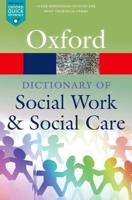Publisher's Synopsis
Social protection systems are intended to support households in financial difficulties, a role that has been underlined during the recent Great Recession in many countries around the world. This volume presents new results on the dynamics of social assistance, minimum-income and related out-of-work benefits in a range of different country contexts. It contains eight original articles, which shed light on benefit spell durations, the movements into and out of receipt of safety net benefits, the individual or family characteristics associated with these movements, the extent of state dependence or 'scarring', and the interaction of various welfare programs. The results establish an evidence base for an informed policy debate in a range of OECD countries. They also provide methodological background for future work on benefit receipt patterns.










